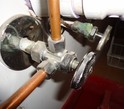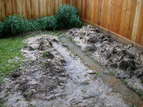|
|
ArchivesCategories |
- Plumbers / Drain Service
-
Plumbing Services
- Boiler Repair - Replace
- Clogged Drains and Sewer Lines
- Faucet Replacement
- Elizabeth Furnace Installation & Replacement
- Furnace Service & Maintenance
- General Plumbing Repairs
- Heat Pump Service & Maintenance
- Hot Water Heater Repair Replace
- Humidity Control & Dehumidification
- New Supply and Drain Lines
- Toilet and Vanity Replacement
- About Us
- Privacy Policy
- Contact Us
-
Areas We Service
- Plumber Bayonne
- Plumber Belleville
- Plumber Carlstadt
- Plumber Edgewater
- Plumber Hoboken
- Plumber Jersey City
- Plumber Kearny
- Plumber Lodi
- Plumber Lyndhurst
- Plumber Newark
- Plumber North Arlington
- Plumber North Bergen
- Plumber Palisades Park
- Plumber Ridgefield Park
- Plumber Rutherford
- Plumber Secaucus
- Plumber Teaneck
- Plumber Union City
- Plumber West New York
- Plumber Weehawken
- Blog
|
Elizabeth Plumbers and Drain Service

|
Elizabeth Drain Service is a full service and licensed plumbing contractor that specializes in drain clearing and sewer backups and repairs. Call us today if you have any plumbing needs.
|

 RSS Feed
RSS Feed



